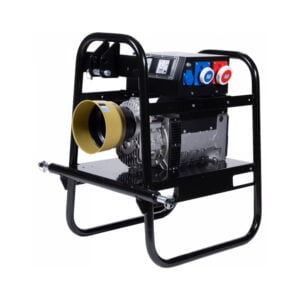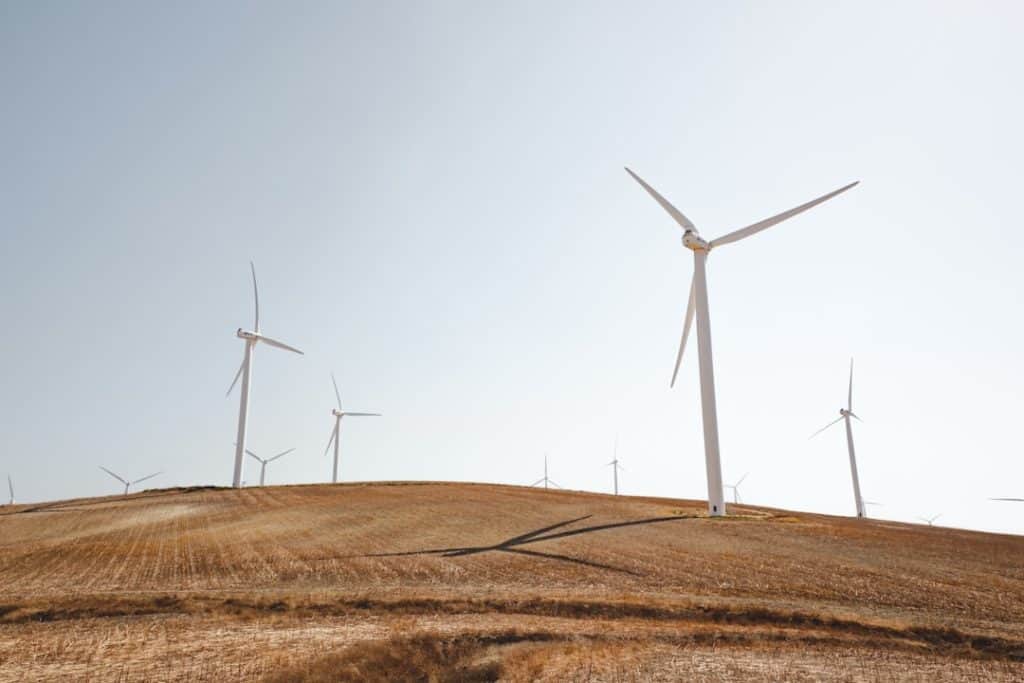Solar power generation systems are devices that convert sunlight into electricity. They consist of photovoltaic panels that absorb sunlight and convert it into direct current. The inverter then converts the direct current into alternating current suitable for home use.
These systems can be mounted on roofs, facades or on the ground. The main components of the solar system are:
1. Photovoltaic panels
2.
Inverter
3. Mounting system
4. Electrical installations and protection
Solar systems come in a variety of sizes, from small home installations to large solar power plants.
System efficiency depends on a number of factors, including geographic location, panel orientation, and equipment quality. The benefits of solar systems include reduced electricity bills, energy independence and reduced emissions. However, initial installation costs can be high, and energy production varies depending on weather conditions and season.
Key Takeaways
- Solar power generators are devices that convert solar energy into electricity.
- The advantages of using solar generators include a reduction in electricity bills, independence from traditional energy sources and reduction of harmful gas emissions.
- Solar generators work by having solar panels absorb the sun's energy, which is then converted into electricity via an inverter.
- Environmental aspects of using solar power units include reducing CO2 emissions and reducing water and air pollution.
- The cost-effectiveness of solar generators depends on the size of the system, location, subsidies and long-term savings on electricity bills.
Advantages of using solar aggregates for electricity production
Using solar power generators for electricity production has numerous advantages. First, solar generators use a renewable source of energy - solar energy, which makes them an environmentally friendly choice for electricity generation. Also, the use of solar generators can reduce electricity costs in the long term, because owners of solar generators can generate their own electricity and reduce dependence on traditional energy sources.
Another advantage of using solar power units is the possibility of obtaining subsidies and tax breaks for the owners of solar systems. Many states and local governments offer financial incentives for the installation of solar arrays to encourage the use of renewable energy sources. In addition, solar power generators require minimal maintenance and have a long lifespan, making them an economical choice for electricity generation.
How do solar power generators work?

Solar power generators work by using solar energy to produce electricity. The solar panels that make up the solar aggregate contain photovoltaic cells that convert solar energy into electricity. When sunlight hits the solar panel, the photovoltaic cells generate an electrical current that is then transmitted to the inverter.
An inverter is a device that converts alternating current generated by solar panels into direct current that can be used to power electrical devices. The DC current is then transmitted to the electrical system of a home or office building where it can be used to power various devices. Solar aggregates can be connected to the grid so that the excess electricity produced is returned to the power system, or they can be independent systems that store excess energy in batteries.
Environmental aspects of using solar power units for electricity production
| Aspect | Metric |
|---|---|
| CO2 emission | Reduction of CO2 emissions by X tons per year |
| Spatial occupancy | Less space occupied compared to conventional energy sources |
| Sustainability | Improving sustainability and reducing environmental impact |
| Recycling | The possibility of recycling components of solar aggregates |
Using solar power generators for electricity production has numerous environmental benefits. First, solar generators use the sun's energy as a renewable energy source, which means that they do not pollute the environment and do not contribute to the emission of harmful gases that cause global warming. The use of solar aggregates reduces dependence on fossil fuels as a source of energy, which contributes to the reduction of harmful gas emissions and the preservation of natural resources.
Another environmental advantage of using solar power units is the reduction of the need to exploit natural resources such as carbon, oil and gas. By using solar energy as a source of electricity, the need for extraction and processing of fossil fuels is reduced, thereby reducing the negative impact on the environment. Also, the use of solar power units contributes to reducing the emission of harmful gases that cause air and water pollution, which positively affects the quality of the environment.
Efficiency of solar generators for electricity
Solar power generators can be an economical choice for long-term electricity generation. Although the initial investment in installing a solar system can be high, owners of solar generators can realize significant savings on their electricity bills over the life of the system. Generating your own electricity with solar generators can reduce electricity costs and allow owners to become independent from traditional energy sources.
In addition, many states and local governments offer financial incentives for the installation of solar systems to encourage the use of renewable energy sources. Owners of solar systems can recover part of the investment through subsidies, tax breaks or feed-in tariffs that enable the sale of excess electricity produced to the power system. Also, solar generators require minimal maintenance and have a long lifespan, which makes them an economical choice for electricity production.
How to choose the right solar power unit for your needs?

When choosing a solar generator for your needs, it is important to consider several factors to ensure that the system meets the specific needs of the user. First, the size and capacity of the system should be considered to ensure that it will produce enough electricity to meet the needs of the user. Also, it is important to consider the location of the solar system installation to ensure that it will be exposed to sufficient sunlight during the day.
Another factor to consider when choosing a solar system is the user's budget and the available financial incentives for installing a solar system. It is important to consider the costs of installation, maintenance and potential savings on electricity bills to determine if investing in a solar system is an economical choice for the customer. Also, it is important to consider the type of solar system - whether it will be connected to the grid or an independent system with batteries to store the excess electricity produced.
Tips for maintaining solar generators for electricity
Maintenance of solar power generators is important to ensure that the system operates efficiently and reliably throughout its lifetime. First, regular cleaning of the solar panels is crucial to ensure that sunlight can efficiently reach the photovoltaic cells and enable the production of electricity. Also, it is important to regularly check the condition of the cables and connectors to ensure that there is no damage that could affect the efficiency of the system.
Another tip for maintaining solar systems is to regularly monitor system performance to identify potential problems or loss of efficiency. Monitoring electricity production can help owners identify potential problems with the system and take appropriate repair or maintenance measures. It is also important to regularly service the inverter and other system components to ensure that they function correctly and reliably throughout the life of the system.
FAQs
What are solar generators for electricity?
Solar power generators are devices that convert solar energy into electricity. They consist of solar panels that absorb sunlight and convert it into electricity that can be used to power electrical devices.
How do solar power generators work?
Solar power generators use solar energy that is absorbed by solar panels. When sunlight hits the panels, the photovoltaic effect converts the light into electricity that is then stored in batteries or used directly to power electrical appliances.
What are the advantages of using solar generators for electricity?
The advantages of using solar generators for electricity include reducing electricity costs, reducing environmental pollution, independence from traditional energy sources and the possibility of use in remote areas where electricity is not available.
What is the sustainability of solar generators for electricity?
Solar generators for electricity are sustainable because they use a renewable source of energy - solar energy. Solar energy is inexhaustible and does not pollute the environment, which makes solar energy one of the cleanest sources of energy. Also, solar panels have a long lifespan and require minimal maintenance.













